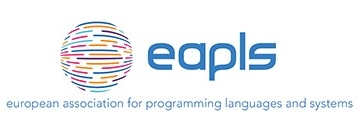Call for Papers
Download text version of the CFP
TAP 2024 is the 18th International Conference on Tests and Proofs. TAP promotes research in verification and formal methods that targets the interplay of static and dynamic analysis techniques with the ultimate goal of improving software and system dependability.
Research in verification has seen an increase in heterogeneous techniques and a synergy between the traditionally distinct areas of dynamic and static analysis. There is growing awareness that dynamic techniques such as testing and static techniques such as proving are complementary rather than mutually exclusive. Notable examples that provide evidence for the potential of a combination of static and dynamic analysis are counterexample generation based on symbolic execution, the integration of SAT/SMT-solving in model checking, or the combination of predicate abstraction with exhaustive enumeration. The verification of systems based on machine learning spurs novel combinations of dynamic and static analyses, e.g., property verification of surrogate models that are generated through testing.
TAP’s scope encompasses many aspects of verification technology, including foundational work, tool development, and empirical research. Topics of interest center around the combination of static techniques such as proving and dynamic techniques such as testing.
Papers are solicited on, but not limited to, the following topics:
- Verification and analysis techniques combining proofs and tests,
- Static analysis of programs with the aid of dynamic techniques,
- Deductive techniques supporting the automated generation of test vectors and oracles,
- Deductive techniques supporting (novel) definitions of coverage criteria,
- Specification inference by deductive or dynamic methods,
- Testing and runtime analysis of formal specifications,
- Search-based techniques for proving and testing,
- Testing and Verification of systems based on machine learning,
- Verification of verification tools and environments,
- Applications of test and proof techniques in new domains,
- Combined approaches of test and proof in the context of formal certifications (Common Criteria, CENELEC, …), and
- Case studies, tool and framework descriptions, and experience reports
Artifact Evaluation
Authors are encouraged (but not required) to make the relevant artifacts available to the reviewers (and whenever possible publicly). Artifacts can be provided at submission time or after notification of acceptance and will go through a lightweight reviewing process, handing out availability badges.

